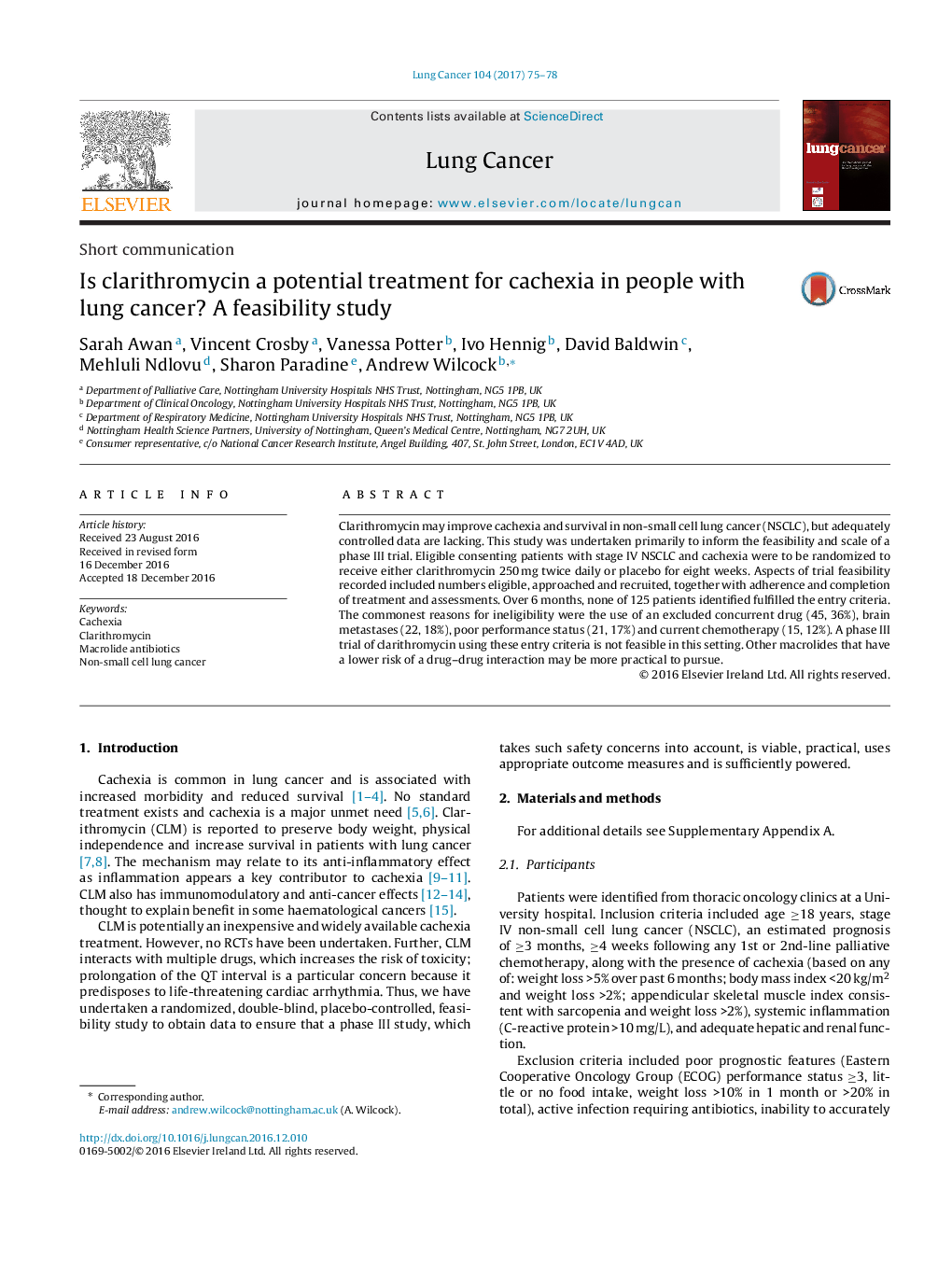| Article ID | Journal | Published Year | Pages | File Type |
|---|---|---|---|---|
| 5528410 | Lung Cancer | 2017 | 4 Pages |
â¢Clarithromycin may be of benefit in lung cancer but controlled data are lacking.â¢This study was undertaken to inform the feasibility and scale of a phase III trial.â¢Of 125 patients identified over 6 months, none fulfilled the entry criteria.â¢36% were ineligible because of an excluded concurrent drug.â¢Macrolides with fewer drug-drug interactions may be more practical to pursue.
Clarithromycin may improve cachexia and survival in non-small cell lung cancer (NSCLC), but adequately controlled data are lacking. This study was undertaken primarily to inform the feasibility and scale of a phase III trial. Eligible consenting patients with stage IV NSCLC and cachexia were to be randomized to receive either clarithromycin 250Â mg twice daily or placebo for eight weeks. Aspects of trial feasibility recorded included numbers eligible, approached and recruited, together with adherence and completion of treatment and assessments. Over 6 months, none of 125 patients identified fulfilled the entry criteria. The commonest reasons for ineligibility were the use of an excluded concurrent drug (45, 36%), brain metastases (22, 18%), poor performance status (21, 17%) and current chemotherapy (15, 12%). A phase III trial of clarithromycin using these entry criteria is not feasible in this setting. Other macrolides that have a lower risk of a drug-drug interaction may be more practical to pursue.
